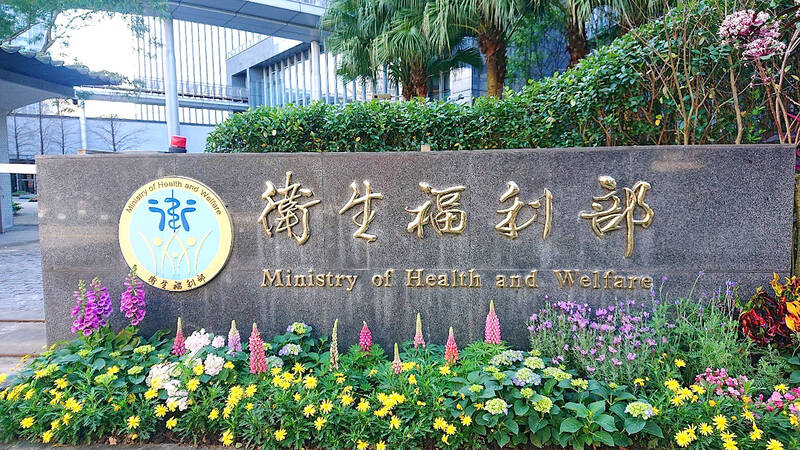The Ministry of Health and Welfare (MOHW) yesterday held a news conference to showcase its training program for surgeons’ medical resilience enhancement, which aims to improve the nation’s emergency medical treatment capability and improve survival rates during major disasters.
The program is part of the Executive Yuan’s four-year national resilience and healthcare preparedness program approved last year.
The ministry has commissioned the Taiwan Surgical Association, Taipei Medical University and Formosa Association for the Surgery of Trauma to co-organize and implement the program.

Photo: CNA
The news conference was held at Far Eastern Memorial Hospital in New Taipei City yesterday to promote the program and showcase the plans, which include incorporating virtual reality (VR) technology into training.
The program aims to train surgeons and improve their skills to treat trauma in emergency conditions, including traffic accidents, explosions, earthquakes and other major disasters, in the hope of increasing survival rates, Taiwan Surgical Association president Tsai Chien-sung (蔡建松) said.
The surgical departments have been making progress toward achieving more precise and minimally invasive methods for performing surgeries, but these skills might not be as applicable in the event of major disasters, Far Eastern Memorial Hospital superintendent Chiu Kuan-ming (邱冠明) said.
Through the training program, younger surgeons, who might be unfamiliar with treating major injuries, can reignite their passion, deepen their knowledge and develop the skills to handle the worst scenarios, he said.
Tsai said that aside from gathering more than 100 experts and healthcare professionals with deep clinical experience to develop in-person courses and videos, the program would also incorporate VR technology.
The ministry also plans to train more than 10,000 healthcare practitioners, he said.
The Taiwan Surgical Association said VR technology can also allow participants to practice treating serious injuries, including emergent airway management, traumatic pneumothorax (a collapsed lung) treatment and wound packing and tourniquet applications, in simulated high-pressure scenarios.
Quick response and increasing survival rates are two important factors in treating injuries in major disasters, and sometimes the open wounds might be very large, so aside from precision and smart surgery skills, other surgical methods acquired in the training program would also be needed, MOHW Department of Medical Affairs Director-General Liu Yueh-ping (劉越萍) said.
With in-person courses and VR-simulated training, the misnitry hopes to establish the principles for emergency trauma and casualty treatment in disasters, and help improve healthcare professionals’ surgical skills to respond to disaster, Taiwan Surgical Association’s trauma committee head Lin Heng-fu (林恆甫) said.

Taiwan is to commence mass production of the Tien Kung (天弓, “Sky Bow”) III, IV and V missiles by the second quarter of this year if the legislature approves the government’s NT$1.25 trillion (US$39.78 billion) special defense budget, an official said yesterday. Commenting on condition of anonymity, a defense official with knowledge of the matter said that the advanced systems are expected to provide crucial capabilities against ballistic and cruise missiles for the proposed “T-Dome,” an advanced, multi-layered air defense network. The Tien Kung III is an air defense missile with a maximum interception altitude of 35km. The Tien Kung IV and V

The disruption of 941 flights in and out of Taiwan due to China’s large-scale military exercises was no accident, but rather the result of a “quasi-blockade” used to simulate creating the air and sea routes needed for an amphibious landing, a military expert said. The disruptions occurred on Tuesday and lasted about 10 hours as China conducted live-fire drills in the Taiwan Strait. The Civil Aviation Administration (CAA) said the exercises affected 857 international flights and 84 domestic flights, affecting more than 100,000 travelers. Su Tzu-yun (蘇紫雲), a research fellow at the government-sponsored Institute for National Defense and Security Research, said the air

Taiwan lacks effective and cost-efficient armaments to intercept rockets, making the planned “T-Dome” interception system necessary, two experts said on Tuesday. The concerns were raised after China’s military fired two waves of rockets during live-fire drills around Taiwan on Tuesday, part of two-day exercises code-named “Justice Mission 2025.” The first wave involved 17 rockets launched at 9am from Pingtan in China’s Fujian Province, according to Lieutenant General Hsieh Jih-sheng (謝日升) of the Office of the Deputy Chief of the General Staff for Intelligence at the Ministry of National Defense. Those rockets landed 70 nautical miles (129.6km) northeast of Keelung without flying over Taiwan,

City buses in Taipei and New Taipei City, as well as the Taipei MRT, would on Saturday begin accepting QR code payments from five electronic payment providers, the Taipei Department of Transportation said yesterday. The new option would allow passengers to use the “transportation QR code” feature from EasyWallet, iPass Money, iCash Pay, Jkopay or PXPay Plus. Passengers should open their preferred electronic payment app, select the “transportation code” — not the regular payment code — unlock it, and scan the code at ticket readers or gates, General Planning Division Director-General Liu Kuo-chu (劉國著) said. People should move through the